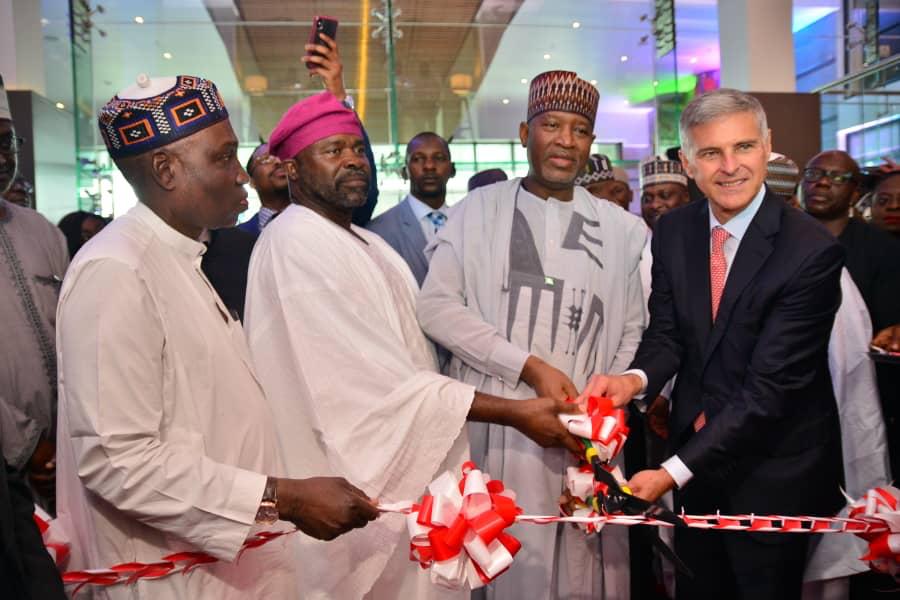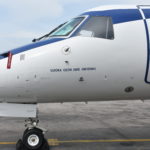
In the last three weeks Nigerians have spoken enviously about the terminal at the Katoka International Airport, Accra. They talked about the facility glibly and made mocking reference to Nigeria’s dilapidated airport facilities.
What roiled the nation’s countrymen and women is that the opening of the Accra airport terminal coincided with the suspension of the process for Nigeria’s national carrier, Nigeria Air.
The announcement of the suspension of the national carrier caught many Nigerians in the quick because before the sudden suspension, those promoting it raised so much hope about the project that some politicians adorned aircraft with Nigeria Air livery on campaign billboards. It was also touted as one of the achievements of the Buhari administration.
Since after the suspension of the planned airline and the opening of the Accra airport terminal, there have been workshops, conferences and breakfast meeting in the aviation sector, where the butt of discussion was on airport infrastructure and domestic airlines.
Conscious of the Accra airport terminal, some aviation industry observers are now repositioning their argument; that airport can become a hub without a major airline. They would quickly cite Ghana which has no major airline but it built a world standard airport terminal that is attracting major airlines in Africa, Europe and Middle East, with a subtle threat that Ghana would soon take over as operational hub for West and Central Africa.
This fear was robbed in recently when Emirates Airlines brought in the world’s largest passenger aircraft, Airbus A 380 t o Ghana. The regional manager of Emirates, Afzal Parambil justified the Middle East decision, saying that airport infrastructure is a key factor that influences the decision of the airline’s choice of routes and operating aircraft.
So last week when the Minister of State, Aviation, Hadi Sirika unveiled the acclaimed most exotic hotel in Nigeria, the Eagle Airport Hotel at the Murtala Muhammed International Airport (MMIA), Lagos, he acknowledged the deafening noise made about the Accra airport terminal and reinforced the desire of the Buhari administration to concession major airports in the country.
Industry observers however admitted that when the frenzy about the national carrier was high, the plan to concession the airports rolled from a footnote to oblivion. Now the Minister has exhumed it.
“Within the first quarter of next year Airbus A380 will be landing in Nigeria. But this year, before the end of this October we will be opening the terminal in Port Harcourt; the Chinese terminal, which is ready and to start operations. We will also be opening the terminal in Abuja, all in this October. It is also ready for operations. The recent opening of a terminal in Accra, Ghana was over celebrated on twitter. And I think twitter will not have space when we will open Abuja and Port Harcourt airports this October. All the other new terminals will be opened.
“But having said that, I hope you have not forgotten that the major purpose of this government from the inception, as far as aviation is concerned, is to concession the airports. This is because we do not believe that government can effectively run these airports. We must have to work with the private sector in airport management. But because we are like social democrats, we don’t intend to cede the assets to private hands. We intend to concession it for a maximum period of 30 years. I am very sure they will be run very efficiently and the private sector will make their money and get the service that we need that has been eluding the country,” Sirika said.
He described Nigeria as a huge market for air transport with so much potential for growth.
“Nigeria is a massive market for air transport. The celebrated Ghana records about 450,000 passenger traffic annually; but despite the dilapidated airport infrastructure, which we are striving to improve on, Nigeria records 16 million passengers per annum. That is 30 times Ghana market. We are also so lucky to be at the centre of the world, that is God given and we thank God for that,” Sirika intoned.
Many industry observers ask, if the Minister knew all these about the need to build modern airport infrastructure, why didn’t he concentrate on airport concession instead of national carrier, which did not materiaise?
Travel expert, Ikechi Uko told THISDAY recently that when the domestic terminal at the Lagos airport, MMA2, was built, it was the best terminal in West Africa, but since then Senegal and Ghana have built ultra modern airport facilities and MMA2 has been eclipsed.
So while Nigeria has the highest number of passengers in the West and Central Africa, the country does not have modern airports or major airlines to harness the advantages, which include huge revenue, job creation, manpower development and the growth of the hospitality sector.






